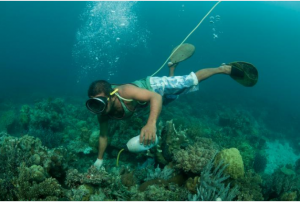Ever wonder what are the different ways fishermen adopts to ensure that their fishing hauls are bountiful and financially viable? Unlike the past, fishing has emerged increasingly sophisticated with fishing techniques that were developed to promote more effective catching. While this provides greater fishing yields with reduced efforts, such practices are fundamentally detrimental to the natural habitats. Presented here are some intriguing facts about some destructive fishing methods.
Trawling:
This widely adopted technique of fishing involves the casting of huge nets that enables the capturing of fishes at large-scale industrial level. Its fundamental environmental implications are in two folds. Firstly, as this method is non-selective in nature, marine mammals and seabirds without economic values are killed accidentally during the trawling process and discarded back to the ocean inhumanely Secondly, trawling not only causes physical damage to the coral reefs but also leaves them susceptible to infection by opportunistic microorganism. This physical impact were often difficult to heal as exemplified by a study done in Alaskan where a single wave of trawling had resulted in damage that has not recovered even after a year later.
Cyanide Fishing:
In this technique that was developed in the 1960s, fishes were exposed to small puffs of sodium cyanide sufficient that momentarily stuns them without threatening their lives. Although this helps to promote easier catching, its hazardous impact resides in where these chemicals are administered. Cyanide essentially degrades the corals and the creatures that depend on them. With widespread usage of cyanide, children and pregnant ladies should take additional precaution on avoiding the consumption of cyanide containing fishes.
Ghost Fishing:
We have often heard of how marine life forms are negatively affected by the discharged of waste products such as oil and rubbish to the ocean. However, what is more likely to be unheard of is how unwanted or lost fishing gears could essentially serve as another lethal pollutant. Whales, turtles and dolphins that drifts past these gears (eg : fishing nets) gets caught.


